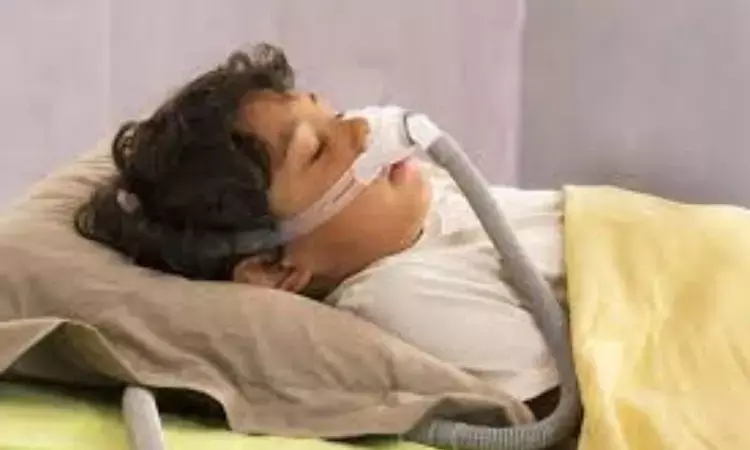- Home
- Medical news & Guidelines
- Anesthesiology
- Cardiology and CTVS
- Critical Care
- Dentistry
- Dermatology
- Diabetes and Endocrinology
- ENT
- Gastroenterology
- Medicine
- Nephrology
- Neurology
- Obstretics-Gynaecology
- Oncology
- Ophthalmology
- Orthopaedics
- Pediatrics-Neonatology
- Psychiatry
- Pulmonology
- Radiology
- Surgery
- Urology
- Laboratory Medicine
- Diet
- Nursing
- Paramedical
- Physiotherapy
- Health news
- Fact Check
- Bone Health Fact Check
- Brain Health Fact Check
- Cancer Related Fact Check
- Child Care Fact Check
- Dental and oral health fact check
- Diabetes and metabolic health fact check
- Diet and Nutrition Fact Check
- Eye and ENT Care Fact Check
- Fitness fact check
- Gut health fact check
- Heart health fact check
- Kidney health fact check
- Medical education fact check
- Men's health fact check
- Respiratory fact check
- Skin and hair care fact check
- Vaccine and Immunization fact check
- Women's health fact check
- AYUSH
- State News
- Andaman and Nicobar Islands
- Andhra Pradesh
- Arunachal Pradesh
- Assam
- Bihar
- Chandigarh
- Chattisgarh
- Dadra and Nagar Haveli
- Daman and Diu
- Delhi
- Goa
- Gujarat
- Haryana
- Himachal Pradesh
- Jammu & Kashmir
- Jharkhand
- Karnataka
- Kerala
- Ladakh
- Lakshadweep
- Madhya Pradesh
- Maharashtra
- Manipur
- Meghalaya
- Mizoram
- Nagaland
- Odisha
- Puducherry
- Punjab
- Rajasthan
- Sikkim
- Tamil Nadu
- Telangana
- Tripura
- Uttar Pradesh
- Uttrakhand
- West Bengal
- Medical Education
- Industry
OSA 18 questionnaire suitable option to monitor OSA improvement after Paediatric Adenotonsillar Hypertrophy surgery

New Delhi: Children with obstructive sleep apnea (OSA) like symptoms can undergo portable polysomnography before and after surgery to show the severity of OSA and objectively monitor OSA improvement post-treatment, a recent study has stated. In the absence of portable polysomnography (PSG) availability, OSA 18 questionnaire is an appropriate alternative to monitor disease outcomes and severity.
The study's findings appeared in the Indian Journal of Otolaryngology and Head & Neck Surgery on 31 December 2022.
Himanshu Swami conducted the study, Army Hospital Research and Referral, New Delhi, India, and colleagues to determine the post-surgical outcomes in pediatric adenotonsillar hypertrophy with OSA using portable polysomnography, OSA 18 Questionnaire and Quality of life (QoL) scores. They also aimed to correlate the subjective outcomes with objective scores of polysomnography.
For this purpose, they performed a single-arm, prospective, nonrandomized, single-centre study at a tertiary care centre on 30 children aged 3-12 with adenoid hypertrophy/ tonsillar hypertrophy/adenotonsillar hypertrophy and symptoms indicative of OSA. All children underwent suitable surgical intervention. A portable evaluation of the OSA 18 questionnaire and PSG was performed presurgery and six weeks after surgery to evaluate clinical and objective assessment for OSA. The children's mean age was 8.68 ± three years.
The study revealed the following findings:
- The mean pre-treatment AHI was 12.56 ± 13.16, which improved to 1.72 ± 1.53 post-surgery and was statistically significant.
- Post-surgery, the authors observed a statistically significant improvement in other PSG indices, such as ODI and RDI.
- The mean total symptom score (TSS) and QoL score showed a statistically significant improvement post-treatment.
- The authors did not find any correlation between the OSA 18 questionnaire and PSG scores pre and post-surgery.
"Children with obstructive sleep apnea-like symptoms can undergo portable polysomnography pre and post-surgery to show the severity of OSA and objectively monitor OSA improvement post-treatment," the researchers wrote. "In the absence of PSG, OSA 18 questionnaire is an appropriate alternative to monitor disease outcomes and severity."
"Further studies may plan to include the impact of paediatric OSA on other functions such as cardiac, dentition & malocclusion and neurocognitive function," they concluded.
Reference:
Roy, R., Banger, S., Singh, S.K. et al. Post Surgical Outcomes in Paediatric Adenotonsillar Hypertrophy with Obstructive Sleep Apnea: Subjective and Objective Evaluation. Indian J Otolaryngol Head Neck Surg (2022). https://doi.org/10.1007/s12070-022-03453-y
Surgery for Paediatric Adenotonsillar Hypertrophy fails to improve sleep apnea and QoL scores
Dr Kamal Kant Kohli-MBBS, DTCD- a chest specialist with more than 30 years of practice and a flair for writing clinical articles, Dr Kamal Kant Kohli joined Medical Dialogues as a Chief Editor of Medical News. Besides writing articles, as an editor, he proofreads and verifies all the medical content published on Medical Dialogues including those coming from journals, studies,medical conferences,guidelines etc. Email: drkohli@medicaldialogues.in. Contact no. 011-43720751


